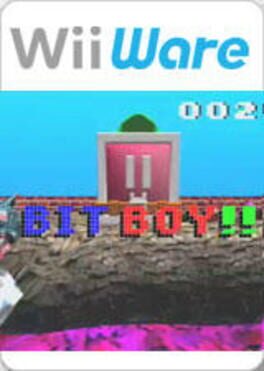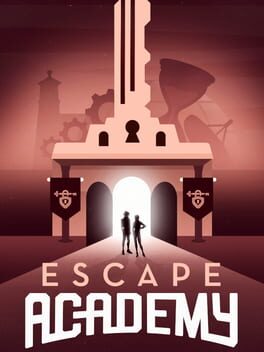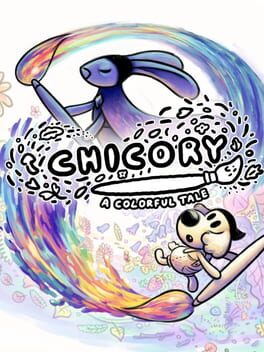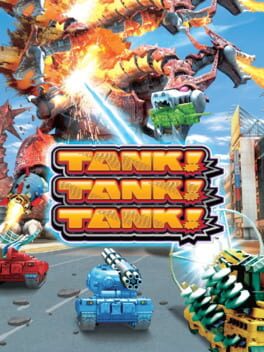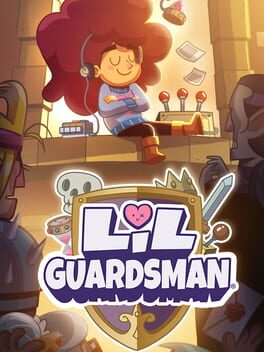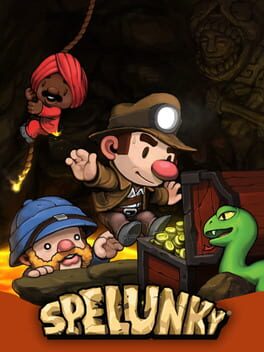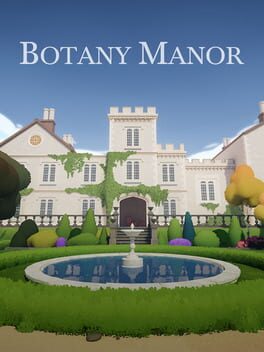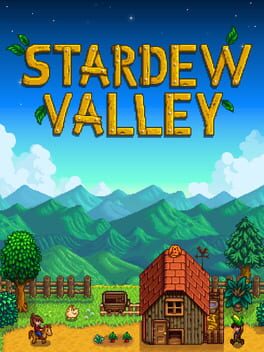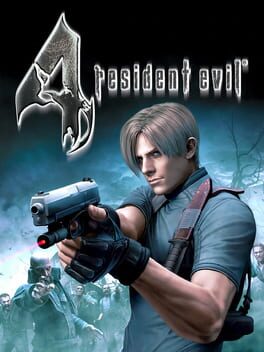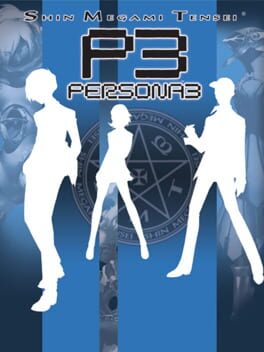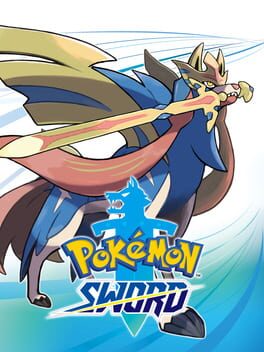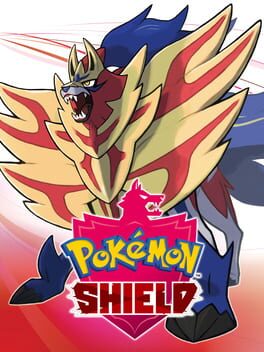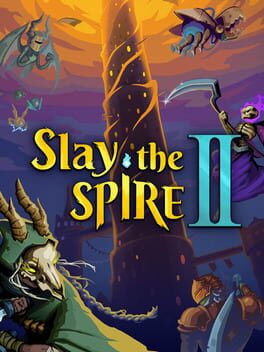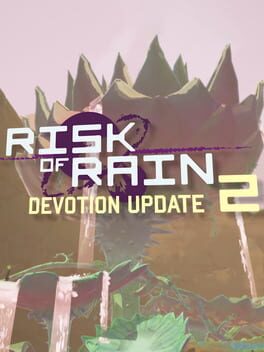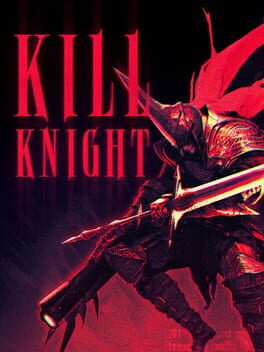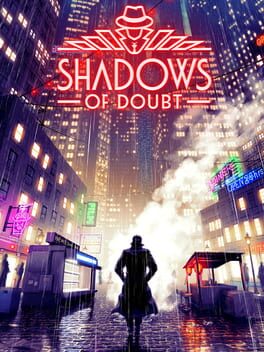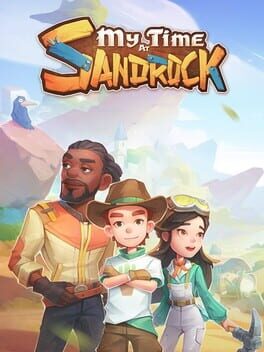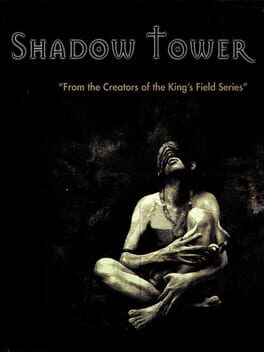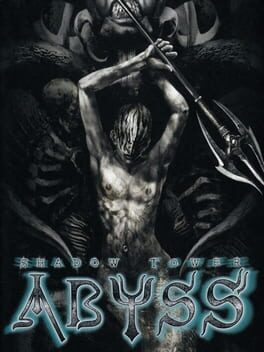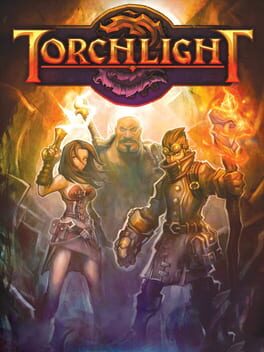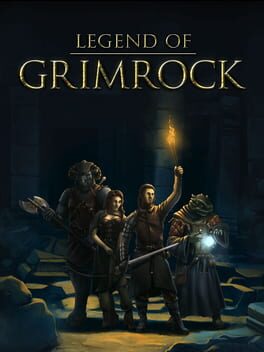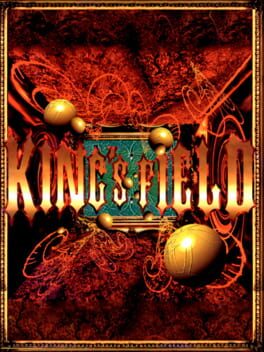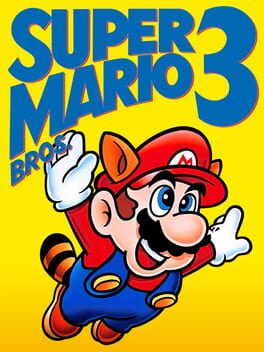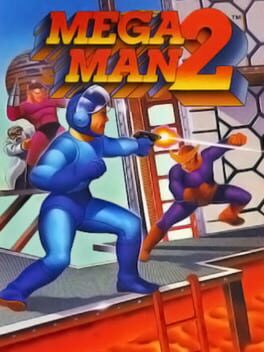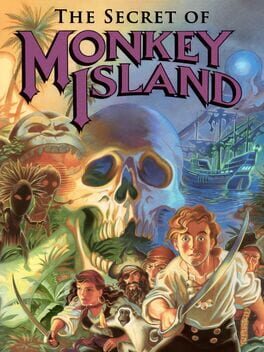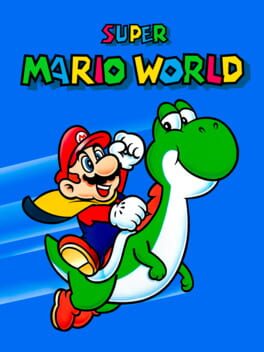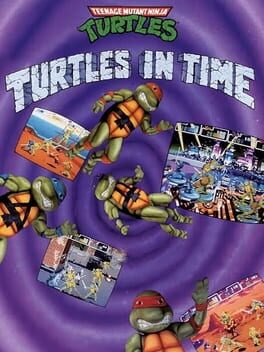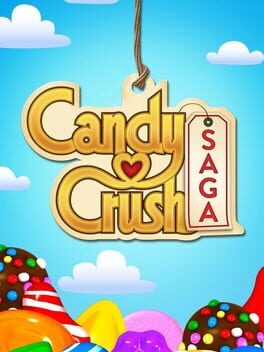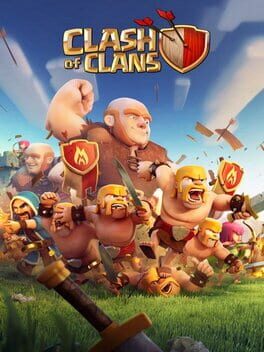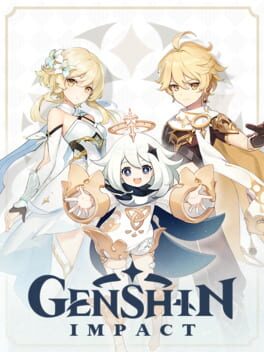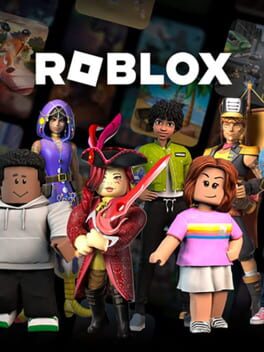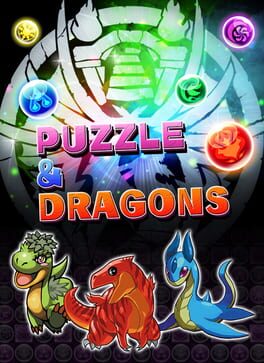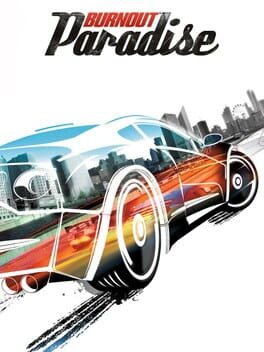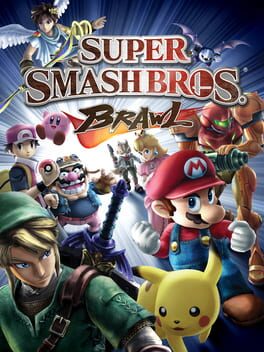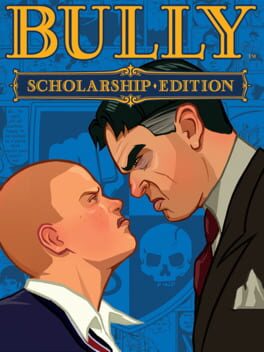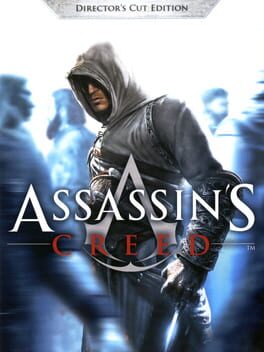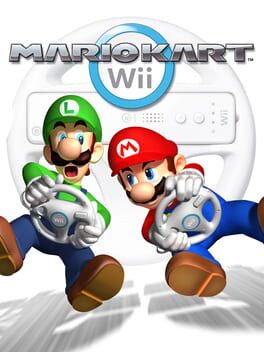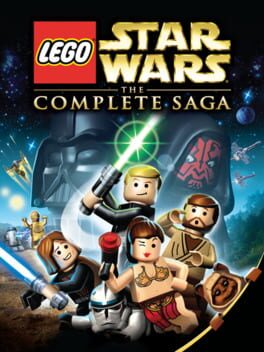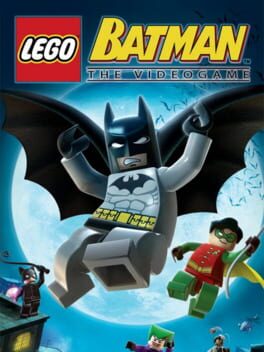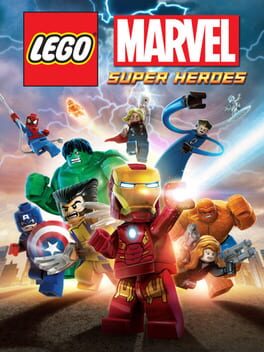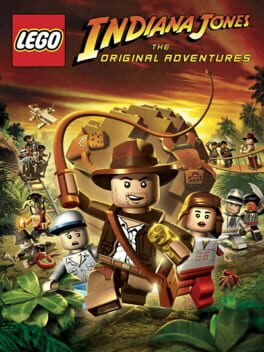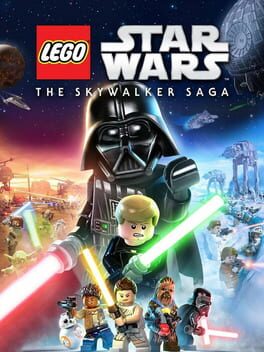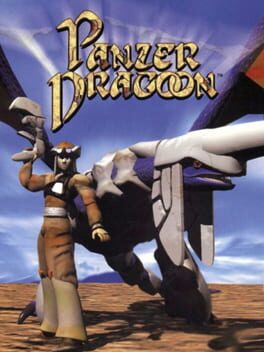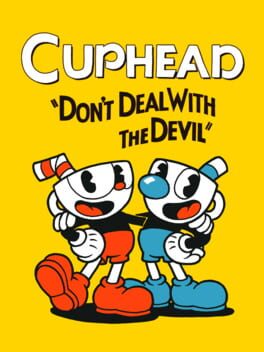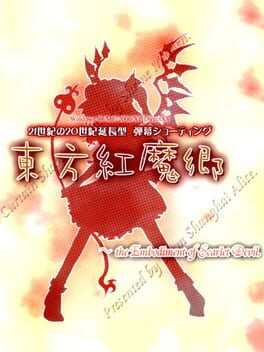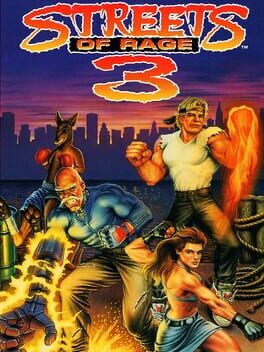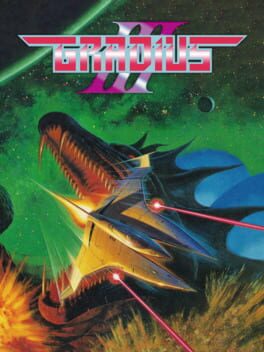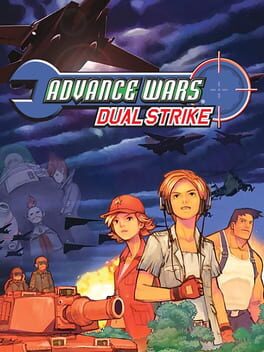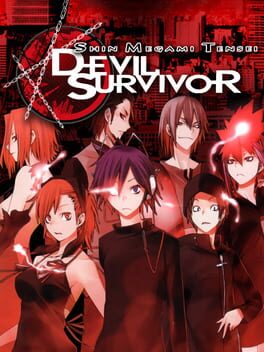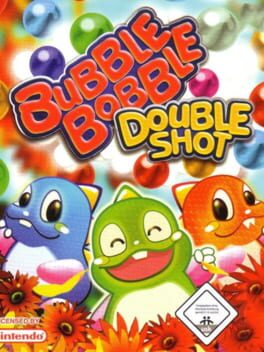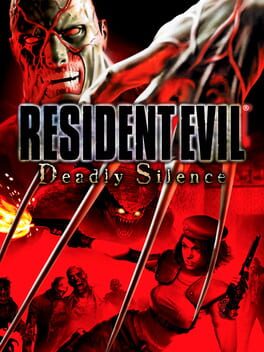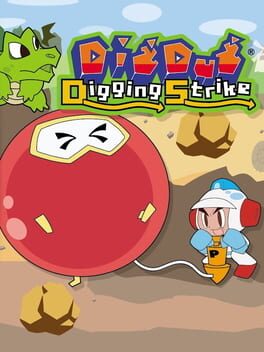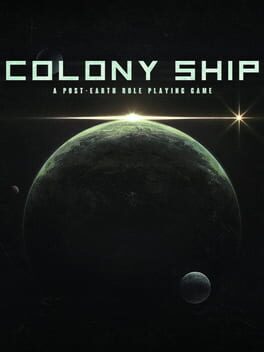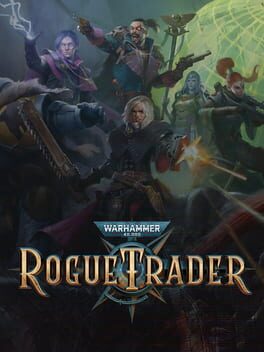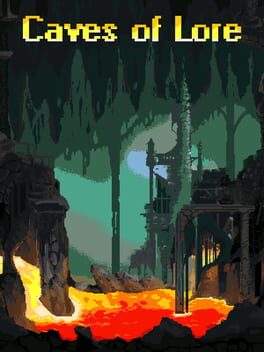Mettenem
BACKER
1101 reviews liked by Mettenem
Bit Boy!!
2009
What if Secret Collect was a Pac-Man game
Bit Boy is perfectly emblematic of original WiiWare titles. It plays around with retro aesthetics (incorporating art styles from "4-bit" up through "128-bit"), incorporates familiar gameplay mechanics from arcade titles that most everyone is familiar with, and is really, really short. It's fine!
Bit Boy is perfectly emblematic of original WiiWare titles. It plays around with retro aesthetics (incorporating art styles from "4-bit" up through "128-bit"), incorporates familiar gameplay mechanics from arcade titles that most everyone is familiar with, and is really, really short. It's fine!
Escape Academy
2022
Not a lot to say here. Just a short and cute little escape room game. The levels are interesting, and multiplayer seems fun, although I played it by myself. If anything, I wish it could have been more difficult near the end, but I still enjoyed all the levels.
Chicory tries to meld the coziness of Animal Crossing with the action and adventure of Zelda. There are towns to visit, characters to chat with, and portraits to paint; likewise, there are dungeons to delve through and bosses to battle. It sounds great, and in some ways it is, but unfortunately there are a few niggles that dampen the proceedings.
Let's start with the story and characters. The main characters are a highlight -- the dynamic between the protagonist and Chicory is one of the best parts of the game. Both characters have clear motivations and distinct personalities, and their conversations flow between topics like friendship, confidence, and artistry with ease. Reading their conversations is always a joy.
As for the other NPCs, my feelings are mixed. They're all fun and quirky, but I rarely felt engaged when chatting with them. They'd tell me about their problems, or thank me for painting their houses, or talk about what they'd had for lunch, and I'd simply nod my head and wonder how soon I could get back to the main crux of the adventure.
The adventure itself is also one of ups and downs. Exploring the map is fun, and the game offers up plenty of clever puzzles to solve, both mandatory and optional. If you've played a Zelda game, you can expect puzzles in that vein, although often with unique painting-centric twists.
The bosses, on the other hand, were frustrating. Because there are no Game Overs in Chicory, the bosses aren't difficult in the traditional sense, but they do take a lot of hits to bring down. Although the battles look intense, knowing you can't lose drains them of any sense of tension. Just keep swiping with your brush and you'll win eventually.
While I appreciate the story and I'm glad that Chicory exists, for me it feels a bit too at odds with itself. It has an abundance of cute characters but 90% of them have nothing interesting to say; it's a Zelda-like adventure but with boss battles that feel less tense and more tedious. The result is still a strong game, but one that could've been even stronger if it had cut a bit of fat and doubled down on what it does well.
Let's start with the story and characters. The main characters are a highlight -- the dynamic between the protagonist and Chicory is one of the best parts of the game. Both characters have clear motivations and distinct personalities, and their conversations flow between topics like friendship, confidence, and artistry with ease. Reading their conversations is always a joy.
As for the other NPCs, my feelings are mixed. They're all fun and quirky, but I rarely felt engaged when chatting with them. They'd tell me about their problems, or thank me for painting their houses, or talk about what they'd had for lunch, and I'd simply nod my head and wonder how soon I could get back to the main crux of the adventure.
The adventure itself is also one of ups and downs. Exploring the map is fun, and the game offers up plenty of clever puzzles to solve, both mandatory and optional. If you've played a Zelda game, you can expect puzzles in that vein, although often with unique painting-centric twists.
The bosses, on the other hand, were frustrating. Because there are no Game Overs in Chicory, the bosses aren't difficult in the traditional sense, but they do take a lot of hits to bring down. Although the battles look intense, knowing you can't lose drains them of any sense of tension. Just keep swiping with your brush and you'll win eventually.
While I appreciate the story and I'm glad that Chicory exists, for me it feels a bit too at odds with itself. It has an abundance of cute characters but 90% of them have nothing interesting to say; it's a Zelda-like adventure but with boss battles that feel less tense and more tedious. The result is still a strong game, but one that could've been even stronger if it had cut a bit of fat and doubled down on what it does well.
Lies of P
2023
Lies of P never manages to escape the shadow of its inspirations. I’ve played nearly a dozen Souls-likes and none have had this gargantuan of an obsession with Souls aesthetically and mechanically. Anyone who has seen gameplay will go “haha, Bloodborne,” but it’s actually a blend of a majority of FromSoftware’s modern catalog.
I could sit here drawing hundreds of lines on a whiteboard connecting how much of this game wears its inspiration on its sleeve, but I don’t particularly care to focus on that flaw: This is my favorite non-FromSoftware Souls thus far, and while Neowiz’s overreliance on familiar genre tropes saps memorability from the journey, I’m teeming with excitement for this developer’s future and this was a truly wonderful (albeit painful) 35-hour journey.
Lies of P makes a strong case for itself with the tightest mechanical foundation in any Souls-like, only matched by Team Ninja's Nioh—and even then, I enjoy playing Lies of P far more. It is the first FromSoftware-inspired title to realize the potential of the most exhilarating moments in that iconic franchise.
I was also in shock experiencing the game’s high difficulty. Souls-likes are often easier, which I attribute to the lack of fluidity in most of those titles. It’s hard to justify a deeply challenging experience when your game feels like shit to control, yet Lies of P pulls no fucking punches. This is one of the hardest games I’ve played.
Several bosses, level design quirks, and enemies match the oppressive difficulty of Bloodborne: The Old Hunters and Dark Souls 3's DLC. Hitting credits was accompanied by a massive sigh of relief. I'm still in awe by how intensely this game had sharpened me; I had to ascend to Godhood during the finale to come out of the other side.
The consecutive perfect parries I was pulling off considering the game’s exceptionally tight parry window can only be explained by the birth of a sixth sense. I experienced short bursts of what it felt like to become superhuman, and I was shaking during the final moments of many boss fights. It has been a long time since my heart has pounded that hard.
Several bosses took me 10+ tries, with six or seven in particular taking more than an hour each. The longest I spent on a single boss was around two hours and thirty minutes, although this was because that fight in particular forced me to get good at the game.
It’s not just frustrating difficulty for the sake of it, either (excluding one awful boss). Lies of P justifies its intensity with fantastic fights and over-the-top visuals that will certainly stick with me. If you love the unhinged move-sets and animations from Dark Souls 3, Bloodborne, Sekiro, or Elden Ring, you will feel right at home here. A few in particular are likely making it on a list of some of my favorites ever.
Lies of P also benefits from excellent mechanical additions. I initially thought weapon durability would be a novelty, but having to manage it within a fight is intense, especially when some bosses are marathons and others attack so fast that there aren’t many opportunities to sharpen it.
Being able to break opponents' weapons by doing enough consistent perfect parries (or attacking them while they’re blocking) is an incredible feeling, especially because it can greatly reduce their reach and lessen the damage they deal. Being rewarded with a fundamentally easier fight because you took the time to learn parry timings is awesome.
Parrying to regain health is similarly brilliant, alongside the absolute clutch addition that allows you to restore healing items if you’re out by hitting enemies enough. I have pushed through a good few bosses by being consistent in my defense and offense to restore Pulse Cells. Bosses even restore health passively through a faded red bar, which always puts the pressure on the player to be aggressive.
There’s also a posture system similar to Sekiro, where parrying and dealing damage will gradually whittle away at an enemy or boss. When you break their posture, you can deal a fatal strike; it won’t kill them nor remove a full HP bar like Sekiro does, but it deals a great amount of damage and resets their passive healing bar.
I also love that the weapon system allows you to separate the hilts and blades to combine them into whatever monstrosities you please. I’ve seen some really funny stuff out there, and through my own experimenting, there’s tons of potentially goofy combos. I wish it was easier to spec into other weapon types, but that’s just a normal Souls issue.
The expected leveling system is present, but the most vital progression mechanic are P-Organs. Each of the benefits they provide are vital towards making your battles against bosses go from “what the hell” to “okay, this is possible.” Do not underestimate how important those buffs can be. Two in particular are somewhat overkill because they are necessary to make the dodge not feel like ass; Neowiz probably should have just made that part of the base dodge.
And while the game has a lot of love for Soulsborne aesthetically, many moments do far more with it than just brushing the surface level. Running through abandoned train stations, underground malls, and industrial factories battling carnival-esque puppets, toys brought to life, or gigantic mechanical monstrosities absolutely ruled. Quite a few designs are incredible, and I found that the more Lies of P strayed from what I’m used to in Soulsborne, the more engaged I was. Really makes me hope the next Neowiz title relies less on those tropes, as this game’s most original ideas are phenomenal.
In particular, Lies of P has a mechanic where you rest in a hotel and listen to music. Throughout the game you find vinyl records acquired by either completing quests or killing certain enemies. Return to Hotel Krat, pop that bad boy in, and enjoy. It's a refreshingly unique concept for a game that is so clearly in love with FromSoftware. Actively inviting the player to just sit there and enjoy some good tunes seems simple, but it’s the best.
I’m a bit mixed on the soundtrack. The songs you play on the vinyl are wonderful, but the boss music is too Bloodborne with its epic orchestra and intense choir. Lies of P’s aesthetic differences call for a different sound. The world has a somewhat modern, European-town setting and it’s mostly focused on a steampunk, clockwork feel. One song that appears within the world stands out to me, as it's related to an in-world character's performance, and it's absolutely beautiful. Stuff more in that line would have really worked. Yes, I would happily listen to a lady serenading me in French during a boss fight.
The ending is sincerely beautiful. The way this narrative plays with the most notable aspects of the traditional Pinocchio story and weaves it into the narrative is brilliant. Questioning the humanity of puppets and the nature of the "I want to be a real boy" concept is the core of this story. It has some parts of the "less is more" cryptic storytelling in Soulsborne, but the main narrative beats are clear and compelling. I won't go much further into story spoilers, but I have a lot great things to say about it.
Lies of P is a grand time. It might lack originality, but it makes up for this in execution. It’s the closest a Souls-like has come to capturing FromSoftware’s magic and I could see myself bumping this up to a 4/5 with more reflection. I cannot wait to see what Neowiz makes next.
I could sit here drawing hundreds of lines on a whiteboard connecting how much of this game wears its inspiration on its sleeve, but I don’t particularly care to focus on that flaw: This is my favorite non-FromSoftware Souls thus far, and while Neowiz’s overreliance on familiar genre tropes saps memorability from the journey, I’m teeming with excitement for this developer’s future and this was a truly wonderful (albeit painful) 35-hour journey.
Lies of P makes a strong case for itself with the tightest mechanical foundation in any Souls-like, only matched by Team Ninja's Nioh—and even then, I enjoy playing Lies of P far more. It is the first FromSoftware-inspired title to realize the potential of the most exhilarating moments in that iconic franchise.
I was also in shock experiencing the game’s high difficulty. Souls-likes are often easier, which I attribute to the lack of fluidity in most of those titles. It’s hard to justify a deeply challenging experience when your game feels like shit to control, yet Lies of P pulls no fucking punches. This is one of the hardest games I’ve played.
Several bosses, level design quirks, and enemies match the oppressive difficulty of Bloodborne: The Old Hunters and Dark Souls 3's DLC. Hitting credits was accompanied by a massive sigh of relief. I'm still in awe by how intensely this game had sharpened me; I had to ascend to Godhood during the finale to come out of the other side.
The consecutive perfect parries I was pulling off considering the game’s exceptionally tight parry window can only be explained by the birth of a sixth sense. I experienced short bursts of what it felt like to become superhuman, and I was shaking during the final moments of many boss fights. It has been a long time since my heart has pounded that hard.
Several bosses took me 10+ tries, with six or seven in particular taking more than an hour each. The longest I spent on a single boss was around two hours and thirty minutes, although this was because that fight in particular forced me to get good at the game.
It’s not just frustrating difficulty for the sake of it, either (excluding one awful boss). Lies of P justifies its intensity with fantastic fights and over-the-top visuals that will certainly stick with me. If you love the unhinged move-sets and animations from Dark Souls 3, Bloodborne, Sekiro, or Elden Ring, you will feel right at home here. A few in particular are likely making it on a list of some of my favorites ever.
Lies of P also benefits from excellent mechanical additions. I initially thought weapon durability would be a novelty, but having to manage it within a fight is intense, especially when some bosses are marathons and others attack so fast that there aren’t many opportunities to sharpen it.
Being able to break opponents' weapons by doing enough consistent perfect parries (or attacking them while they’re blocking) is an incredible feeling, especially because it can greatly reduce their reach and lessen the damage they deal. Being rewarded with a fundamentally easier fight because you took the time to learn parry timings is awesome.
Parrying to regain health is similarly brilliant, alongside the absolute clutch addition that allows you to restore healing items if you’re out by hitting enemies enough. I have pushed through a good few bosses by being consistent in my defense and offense to restore Pulse Cells. Bosses even restore health passively through a faded red bar, which always puts the pressure on the player to be aggressive.
There’s also a posture system similar to Sekiro, where parrying and dealing damage will gradually whittle away at an enemy or boss. When you break their posture, you can deal a fatal strike; it won’t kill them nor remove a full HP bar like Sekiro does, but it deals a great amount of damage and resets their passive healing bar.
I also love that the weapon system allows you to separate the hilts and blades to combine them into whatever monstrosities you please. I’ve seen some really funny stuff out there, and through my own experimenting, there’s tons of potentially goofy combos. I wish it was easier to spec into other weapon types, but that’s just a normal Souls issue.
The expected leveling system is present, but the most vital progression mechanic are P-Organs. Each of the benefits they provide are vital towards making your battles against bosses go from “what the hell” to “okay, this is possible.” Do not underestimate how important those buffs can be. Two in particular are somewhat overkill because they are necessary to make the dodge not feel like ass; Neowiz probably should have just made that part of the base dodge.
And while the game has a lot of love for Soulsborne aesthetically, many moments do far more with it than just brushing the surface level. Running through abandoned train stations, underground malls, and industrial factories battling carnival-esque puppets, toys brought to life, or gigantic mechanical monstrosities absolutely ruled. Quite a few designs are incredible, and I found that the more Lies of P strayed from what I’m used to in Soulsborne, the more engaged I was. Really makes me hope the next Neowiz title relies less on those tropes, as this game’s most original ideas are phenomenal.
In particular, Lies of P has a mechanic where you rest in a hotel and listen to music. Throughout the game you find vinyl records acquired by either completing quests or killing certain enemies. Return to Hotel Krat, pop that bad boy in, and enjoy. It's a refreshingly unique concept for a game that is so clearly in love with FromSoftware. Actively inviting the player to just sit there and enjoy some good tunes seems simple, but it’s the best.
I’m a bit mixed on the soundtrack. The songs you play on the vinyl are wonderful, but the boss music is too Bloodborne with its epic orchestra and intense choir. Lies of P’s aesthetic differences call for a different sound. The world has a somewhat modern, European-town setting and it’s mostly focused on a steampunk, clockwork feel. One song that appears within the world stands out to me, as it's related to an in-world character's performance, and it's absolutely beautiful. Stuff more in that line would have really worked. Yes, I would happily listen to a lady serenading me in French during a boss fight.
The ending is sincerely beautiful. The way this narrative plays with the most notable aspects of the traditional Pinocchio story and weaves it into the narrative is brilliant. Questioning the humanity of puppets and the nature of the "I want to be a real boy" concept is the core of this story. It has some parts of the "less is more" cryptic storytelling in Soulsborne, but the main narrative beats are clear and compelling. I won't go much further into story spoilers, but I have a lot great things to say about it.
Lies of P is a grand time. It might lack originality, but it makes up for this in execution. It’s the closest a Souls-like has come to capturing FromSoftware’s magic and I could see myself bumping this up to a 4/5 with more reflection. I cannot wait to see what Neowiz makes next.
Tank! Tank! Tank!
2009
Cannot stress enough how much better the arcade experience is compared to the version on Wii U. There's something visceral about the shaking seats and steering wheel, playing co-op with another setup right next to you. I had a blast! The kind of blast I did not have at home on my couch with the Wii U Gamepad!
Lil' Guardsman
2024
Lil' Guardsman is a fun puzzle/adventure game that has wonderful and whimsical artwork which does a grand job at hiding the game's serious nature that it has sometimes!
Your guard shifts let you interact with a variety of characters who present different challenges with the tools given to you as a Guardsman. You can give them truth spray to get informed of their true intentions, a x-ray machine or metal detector to see if they have anything suspicious on them, or you can also use a whip if you'd like! Because why not! These all present different options of ways to achieve a 3 or 4-star rating for that specific guest, which is fun. Sometimes, the way you achieve those 3 or 4 stars is a bit confusing though.
Your character, Lil, is a 12-year old who does have some tough things going on, and some of that stuff gets discovered more as you go through the game which I am glad we got that type of character development as the game progressed.
Overall, Lil Guardsman is a jolly time and not too long! Not perfect in some ways, but still a fun time!
Your guard shifts let you interact with a variety of characters who present different challenges with the tools given to you as a Guardsman. You can give them truth spray to get informed of their true intentions, a x-ray machine or metal detector to see if they have anything suspicious on them, or you can also use a whip if you'd like! Because why not! These all present different options of ways to achieve a 3 or 4-star rating for that specific guest, which is fun. Sometimes, the way you achieve those 3 or 4 stars is a bit confusing though.
Your character, Lil, is a 12-year old who does have some tough things going on, and some of that stuff gets discovered more as you go through the game which I am glad we got that type of character development as the game progressed.
Overall, Lil Guardsman is a jolly time and not too long! Not perfect in some ways, but still a fun time!
Spelunky
2012
It took about ~300 deaths, but I fucking did it.
Almost everything in my original review still holds up. The Ice Caves is probably my least favorite area in the game but I still liked it, and Temple was a good sendoff to the game.
Hell? Doesn't exist, what are you talking about?
Almost everything in my original review still holds up. The Ice Caves is probably my least favorite area in the game but I still liked it, and Temple was a good sendoff to the game.
Hell? Doesn't exist, what are you talking about?
Paradise Killer
2020
Remember way way back, before Persona 5 and Dark Souls, when Atlus and From Software were making weird niche games that rarely left Japan and sold only like 10,000 copies? Because Paradise Killer will bring all those memories rushing back. It's a zany, colorful blast from the past that would feel right at home on Dreamcast.
Although it's often compared to Phoenix Wright, Paradise Killer has more in common with collectathon platformers. You spend most of your time running around Island 24, gathering clues, collecting blood vials, and interrogating suspects. It's a true open-world game -- there are only a few progress-blocking gates, and most of them can be worked around in multiple ways. You can also end the game at any point. Once you feel you've collected enough evidence, you can return to the judge and start the trial.
Being an open-world game, Paradise Killer exhibits the same pros and cons that are common in the genre. Early on, when the world was still full of collectibles, I had a lot of fun running around, jumping up mountains, and chatting with random characters. But as I neared the end and there were only a few unresolved mysteries and uncollected items left, my patience began to wane as I aimlessly ran around the map in search of the missing piece. Ultimately I was able to find everything without resorting to checking a guide, but not before feeling a twinge of boredom.
Naturally, the game's open-world nature impacts not only the gameplay, but the narrative as well. In my case, I stumbled upon a very big piece of evidence right at the end of the game -- it was literally the last thing I found before taking my case to trial. Because my playthrough unfolded the way it did, this revelation led to a serious sense of deus ex machina. It was like the final piece clicking into place and it felt all too convenient. If I'd found it earlier and had been given time to mentally fit it into my investigative puzzle, perhaps it wouldn't have felt like such an abrupt contrivance. I suppose that's just the nature of open-world games. Everyone's experience will be a bit different, for better or worse.
The final trial is also relatively straightforward. If you're expecting the twists and turns of an Ace Attorney game, you'll be disappointed. Despite that, however, the character are well written and the story that's here is enjoyable enough.
Finally, I must note that the soundtrack is an absolute banger. If anything, I think it's underutilized -- the songs are played as background music when they really deserve more time in the spotlight.
Anyhow, that's Paradise Killer in a nutshell. Come for the platforming and vaporwave vibes, stay for the characters. I'll see you in Perfect 25.
Although it's often compared to Phoenix Wright, Paradise Killer has more in common with collectathon platformers. You spend most of your time running around Island 24, gathering clues, collecting blood vials, and interrogating suspects. It's a true open-world game -- there are only a few progress-blocking gates, and most of them can be worked around in multiple ways. You can also end the game at any point. Once you feel you've collected enough evidence, you can return to the judge and start the trial.
Being an open-world game, Paradise Killer exhibits the same pros and cons that are common in the genre. Early on, when the world was still full of collectibles, I had a lot of fun running around, jumping up mountains, and chatting with random characters. But as I neared the end and there were only a few unresolved mysteries and uncollected items left, my patience began to wane as I aimlessly ran around the map in search of the missing piece. Ultimately I was able to find everything without resorting to checking a guide, but not before feeling a twinge of boredom.
Naturally, the game's open-world nature impacts not only the gameplay, but the narrative as well. In my case, I stumbled upon a very big piece of evidence right at the end of the game -- it was literally the last thing I found before taking my case to trial. Because my playthrough unfolded the way it did, this revelation led to a serious sense of deus ex machina. It was like the final piece clicking into place and it felt all too convenient. If I'd found it earlier and had been given time to mentally fit it into my investigative puzzle, perhaps it wouldn't have felt like such an abrupt contrivance. I suppose that's just the nature of open-world games. Everyone's experience will be a bit different, for better or worse.
The final trial is also relatively straightforward. If you're expecting the twists and turns of an Ace Attorney game, you'll be disappointed. Despite that, however, the character are well written and the story that's here is enjoyable enough.
Finally, I must note that the soundtrack is an absolute banger. If anything, I think it's underutilized -- the songs are played as background music when they really deserve more time in the spotlight.
Anyhow, that's Paradise Killer in a nutshell. Come for the platforming and vaporwave vibes, stay for the characters. I'll see you in Perfect 25.
Botany Manor
2024
I do not have anything bad to say here. The graphics are stunning, the puzzles do not get repetitive, and its all around a cool concept. A cute, relaxed, and small journey through an amazing little world; Definitely worth a play.
Stardew Valley
2016
Stardew Valley feels like coming home.
I can't remember which playthrough I'm on, which is a rarity for me. I've revisited childhood favorites like Zelda and Mario countless times, cherishing each experience. However, as an adult, this happens less frequently. Maybe it's because modern games don't resonate with me as deeply, or maybe my gaming habits have simply changed over time. Yet, whenever I boot up Stardew Valley, it hits all the right notes. Whether I've talked with the residents of Pelican Town dozens of times or played through its events repeatedly, the game retains its magical allure. It feels like a nostalgic return to childhood gaming, a comforting experience I can enjoy every time of the year.
What's truly remarkable is the developer's commitment to continually expanding the game with substantial updates and expansions, all provided for free. Stardew Valley brims with passion and love. Despite its status as one of the most successful indie games of all time, the developer continues to pour his heart into it, enriching the experience for players. I deeply respect and appreciate this dedication, which unfortunately is no longer a given in today's gaming industry.
I could ramble endlessly about this masterpiece of a game, but let me simply express my enduring love for Stardew Valley. Nearly a decade after my first playthrough, it still holds a special place in my heart and it probably always will.
I can't remember which playthrough I'm on, which is a rarity for me. I've revisited childhood favorites like Zelda and Mario countless times, cherishing each experience. However, as an adult, this happens less frequently. Maybe it's because modern games don't resonate with me as deeply, or maybe my gaming habits have simply changed over time. Yet, whenever I boot up Stardew Valley, it hits all the right notes. Whether I've talked with the residents of Pelican Town dozens of times or played through its events repeatedly, the game retains its magical allure. It feels like a nostalgic return to childhood gaming, a comforting experience I can enjoy every time of the year.
What's truly remarkable is the developer's commitment to continually expanding the game with substantial updates and expansions, all provided for free. Stardew Valley brims with passion and love. Despite its status as one of the most successful indie games of all time, the developer continues to pour his heart into it, enriching the experience for players. I deeply respect and appreciate this dedication, which unfortunately is no longer a given in today's gaming industry.
I could ramble endlessly about this masterpiece of a game, but let me simply express my enduring love for Stardew Valley. Nearly a decade after my first playthrough, it still holds a special place in my heart and it probably always will.
129 lists liked by Mettenem
by Game_Event_Lists |
37 Games
by Snigglegros |
74 Games
by _DC |
139 Games
by The_Gaming_Dog12 |
60 Games
by Kat_And_Kash |
20 Games
by Retro |
33 Games
by 87th |
25 Games
by ventilated |
50 Games
